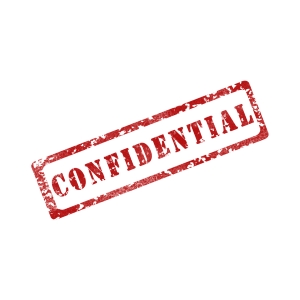
Every business has trade secrets. They represent a value, and their theft or misuse could have disastrous consequences for your turnover, competitive advantage and reputation. It is therefore imperative to protect your secrets, for example by really keeping them secret.
In broad terms, all confidential trade secrets and knowledge (know-how) that give a business a competitive advantage are trade secrets. You could think of customer databases, descriptions of work processes, technical expertise, concepts, software, research data, business strategies, marketing plans, sales methods, contracts, product specifications, formulas and recipes.
Making choices
When you are dealing with something new, an invention, then you need to answer a few questions and you face several choices: Do I want to protect it and is it patentable (or can I possibly protect it in some other way)? Do I want it kept confidential or do I want the information published? Your business model and the stage of (product) development play a part in this: for example, is it worth the effort of starting a patent process if your product offers only an interim solution and need to be replaced in a few months or years anyway?
The options you have depend on the type of information you want to protect. A patent only protects and describes the technical product or process of an invention. Have you invented something and don’t want others to see how it works? If so, non-disclosure could be a good alternative to a patent.
Differences with a patent
One of the most important differences between protection as a trade secret and a patent is that a patent (application) is always made public after a maximum of eighteen months. A patent gives you the right to prohibit others from using your invention for a maximum of 20 years. With trade secrets, the period of validity is equal to the time they are kept confidential and you do not acquire any clearly established exclusive right. You do not require any application or registration for a trade secret. However, you will have to take measures to keep the trade secret confidential. There are occasions when you can combine non-disclosure with other forms of protection. For instance, you could protect the hardware of a digital system with a patent, the software with a copyright and the data could be a trade secret.
Conditions of protection
Since the 2016 European Union directive on the protection of non-public knowledge and business information (trade secrets) came into force, trade secrets are also protected against their unlawful acquisition, use and disclosure. This is only possible, however, if you meet several conditions.
The directive only considers information as a trade secret when:
- It is secret in the sense that it is not generally known or readily accessible;
- It therefore has commercial value; and
- You have taken reasonable steps to keep it secret.
Reasonable steps
As previously mentioned, to keep business information secret, you will need to take reasonable steps. You should consider the following: identifying your trade secrets, physical security, IT security, establishing suitable contractual agreements with employees and business partners and informing and training staff.
Without these measures, you run the risk of the information ending up in the wrong hands. Furthermore, there is a risk that you will not meet the conditions to take legal action after the fact.
Getting started
If your trade secrets are extremely important to your company, then we advise you to think about this in advance. The specialists at V.O. Patents & Trademarks will be happy to support you with:
- Identifying and listing your trade secrets;
- Evaluating any patentability of the trade secrets;
- Establishing a non-disclosure agreement with staff and business partners;
- Describing procedures and processes aimed at non-disclosure and checks to that effect.
For questions or information, please contact Annemie Swinnen, European Patent Attorney, or Annelies de Bosch Kemper, Attorney-at-Law.
Read also our article ‘Does the new law for the protection of trade secrets offer sufficient protection?’

